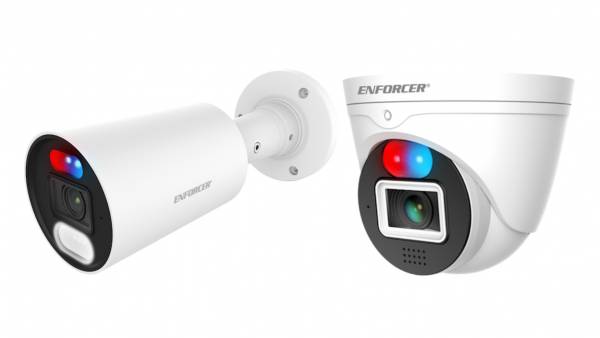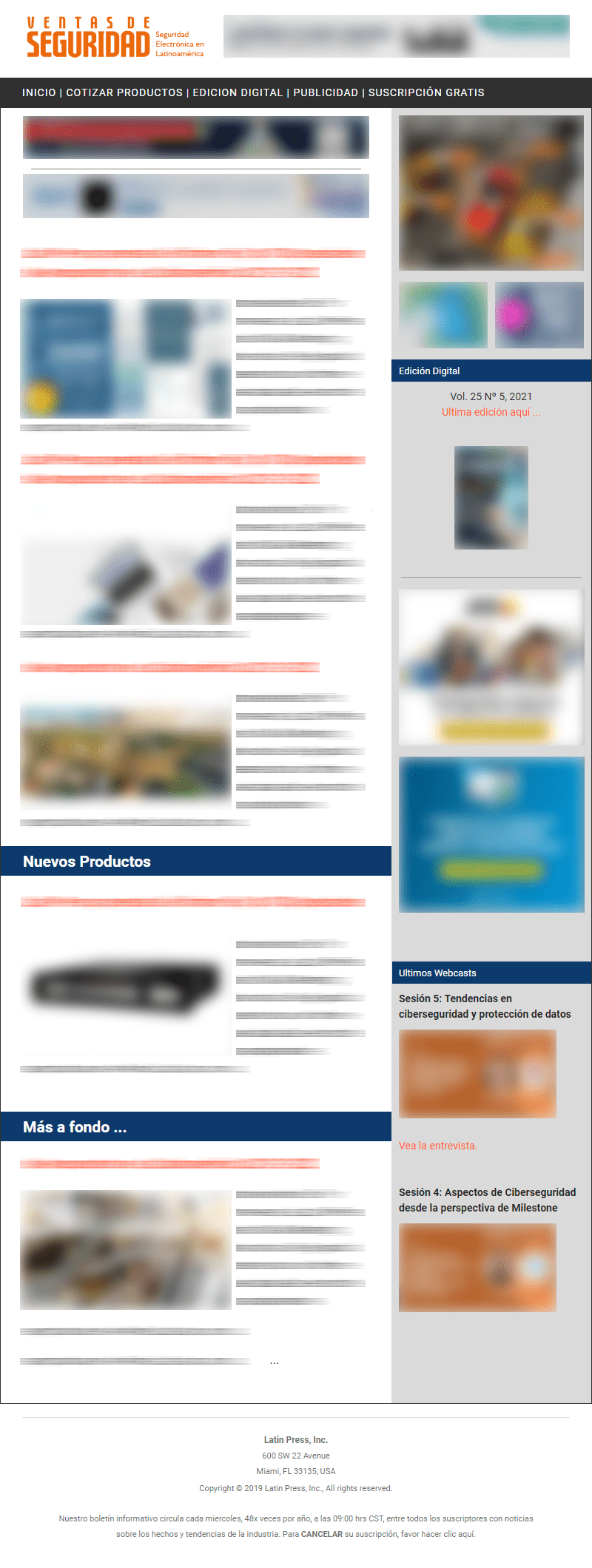 In the previous edition we dealt with the interview, its methods, types and characteristics. We now deal with one step: how to achieve that interview, offering a series of questions that can help you break the initial ice in a sales process.
In the previous edition we dealt with the interview, its methods, types and characteristics. We now deal with one step: how to achieve that interview, offering a series of questions that can help you break the initial ice in a sales process.
by Augusto Diego Berard*
This great truth – pointed out in the title of this article – deserves to be analyzed and understood in depth by all sellers and businessmen. Many times we wonder about the reason for our failures or the lack of results in sales management. In order to discover these causes and correct them, you have to look at sales management with some distance and analyze it carefully.
In most cases, the reasons for the lack of satisfactory results are due to not having known how to listen and not having discovered the needs that motivate a customer to make a purchase (not having interpreted the message). The seller needs to know in detail what motivates the buyer and what their needs are. One of the objectives of any sale is to satisfy customer needs and present, in the eyes of the buyer, a unique and differentiated product. The other objectives are linked to the possibility of making money and obtaining good profitability for the company.
Knowing how to ask is fundamental. You do not have to talk for the sake of talking: it is only necessary to know how to ask and capture the needs expressed by the client. The questions do not bother if they are pronounced at the right time and in the right situation.
You have to ask from the general to be able to get to the punctual and specific of the business that is being treated. It is suggested to use both targeted and open-ended questions. The first are those that seek to obtain as an answer only two alternatives: yes or no. The latter force the interviewee to tell or speak in detail about a certain topic. They do not allow to obtain answers within a yes or a no.
I suggest using more open-ended than closed questions, and practicing their use, to apply them in the sales interview. All the answers must be recorded and written down in the worksheet, since they will always be useful to resume the conversation with the buyer or to create new business opportunities.
What to ask and when to do it?
Below, I'm going to detail some of the questions that need to be asked that help you understand the buyer's needs. I invite you to review and analyze your sales management and find out if you use these questions to sell and generate new business.
They are likely to effectively discover new ways to improve communication and, therefore, improve the performance of the commercial management of your company or your team of salespeople.
The questions are not only going to relate to the product being marketed. There are questions that seek to know the buyer in his personal and intimate phase. The seller must achieve a personal bond and gain the trust of the customer. This confidence exceeds the product. The product can be of excellent quality and of recognized brand, but if the seller is not reliable, the results will be lean or unambitious.
The difference in large companies, are made by men and their ability to relate to others.
Some questions
• Can you speak at this time?: This question is used in both outgoing phone calls and cold interviews. You always have to ask to predispose the buyer well. This denotes interest and respect for each other's time.
Many times the buyer answers the phone while in the middle of a meeting. It does so to know the priority of the call and in case it is really important and urgent. If the caller starts talking without having asked permission to do so, it is very likely that they will achieve a negative response and mis predispose the potential customer. This can create a bad image before you've started talking, even without having submitted your offer yet.
When the answer is yes, the seller has the green light to move forward and begin their sales pitch. If the answer is no, you have to ask "What time can I call you again?" Write down the response received and fulfill the commitment of the call in a timely manner.
•How are you doing? How are your things going?: The goal of this question is to achieve a human relationship between buyer and seller. Corporate or business-to-business sales, also known as Business to Business, are time-consuming and professional. The buyer does his job professionally and rationally. He receives hundreds of calls a month from sellers and knows how to select the best.
In every business, the human relationship is going to make a difference. To do this, there must be trust. The seller is very important; it is the face of the company in front of the buyer. That said, to achieve good business it is necessary to establish human bonds. At the time of the call or face-to-face chat, asking the other "How are you doing?" or "How are you doing?" is always well seen by the buyer. Asking always denotes real interest in the human being in front of us. Knowing how to listen to the answer and be interested in the buyer's sayings will make a difference.
•How many years have you been working in this company? Previously, where did you work?: The sales interview generates stress in the buyer and to reduce tension you have to enter and leave the commercial issue, to also approach the person and their daily problems. I suggest not talking about the product you are trying to sell. First you have to know the motivations of the purchase. Knowing the number of years he has within the company we can infer the power he has within it and what degree of decision-making power he holds. A buyer with less than a year in the position or in the company looks for new suppliers, but must justify every decision he makes to his superiors. On the other hand, the buyer with more years of experience knows very well the internal culture of the company and has decision-making power.
•What area do you live in? How many minutes away from home?: With the answer we can know if the buyer is our neighbor, know if he travels more than an hour to get to work, if he has a vehicle, etc. All answers will be used to talk about trivial topics and strengthen the human bond with the buyer. The seller looks for common ground to make the buyer feel comfortable and put himself in his place.
•Which provider do you currently work with and why?: The professional salesperson knows the competition in detail, knows the strengths and weaknesses of competitors. With the buyer's response, the seller will develop a differential strategy that allows him to displace the current supplier. It is very important to know who the current provider is and how it has come to be. Perhaps it has been a supplier for many years and no one in the company thought of changing it, looking for new and alternative improvements. Perhaps the current supplier is a family member or friend of one of the business owners. In this case, the possibility of moving it is complicated. There are many possible answers and paths to take in front of them. You always have to have the information and know the competitor in detail.
•Would you like to evaluate an improvement or reduction in costs?: Many buyers only look for information and prices from the market to compare them with those of the current supplier and achieve improvements in conditions. They are not looking to buy. The professional seller discovers the true motivations of the buyer by asking. Also achieving cost reduction or lower prices are not always sufficient reasons for buyers to switch suppliers. The price does not make a difference in corporate business: changing suppliers involves many risks, and generally, it is sought to remain unchanged, to avoid greater evils. In this case, "better known bad, than good to know".
• What would be the reason why I would change suppliers or buy my product?: To change providers, there must be serious reasons and reasons that allow this action. If the buyer details them, he gives the seller the arguments to put together his proposal tailored to these needs. Asking is always better than talking ahead of time. It is not useful to present a proposal, without first having heard the reasons why the sale could occur. Working badly is the same as not working. You have to take into account all the steps and times in which buyers make decisions.
• Do you have to consult to make the purchase?: To make a business you have to find the person who makes the decisions. Many presentations and interviews are made in front of people who do not make decisions and who act as a filter or sieve. You have to reach the decision-maker to minimize the chances of working without obtaining results.
•What is the usual way in which they pay suppliers?: Payment terms and conditions are very important to evaluate the viability of a business. There are potential customers who dominate the market and who pay in deferred installments out of the ordinary, abusing their economic power and position within the field. Knowing the terms and payment methods are essential to evaluate the convenience of the business.
Selling and charging after six months can create a financial problem for the company and lower profitability. You always have to ask about the usual form of payment and about the internal management that the invoices do, once the merchandise is delivered. Knowing these details, disappointments and bad business are avoided.
• What does the proposal have to have to be of interest to you?: It is a closing question in which the buyer is forced to give arguments for which he could make the purchase. The buyer needs to be accountable to a superior and to inform their decisions. Every professional seller knows how to put himself in the place of the buyer and provide him with arguments to make the purchase decision. Using referrals from other customers is also very important. The sales proposal is tailored to the buyer's requirements.
•When do you think an agreement can be reached?: The internal deadlines of companies vary according to the importance of the business. Decisions go through several levels within the organizational chart and knowing the times is very important for sales management. If the buyer makes the decision to acquire a new product or to change suppliers, he must then request the intervention of the administrative department for the registration to the system, as well as to prepare a purchase order, inform the payment or finance department, etc.
FEATURED PHRASES
"Knowing how to ask is fundamental. You do not have to talk for the sake of talking: it is only necessary to know how to ask and capture the needs expressed by the client. The questions do not bother if they are pronounced at the right time and the right situation"
"A buyer with less than a year in the position or in the company looks for new suppliers but must justify each decision to his superiors. A buyer with more years of experience, on the other hand, knows very well the internal culture of the company and has decision-making power."
*Augusto Diego Berard is a renowned business consultant. If you want to contact him write to the email: [email protected] or visit the website: www.pampamarketing.com

























Leave your comment